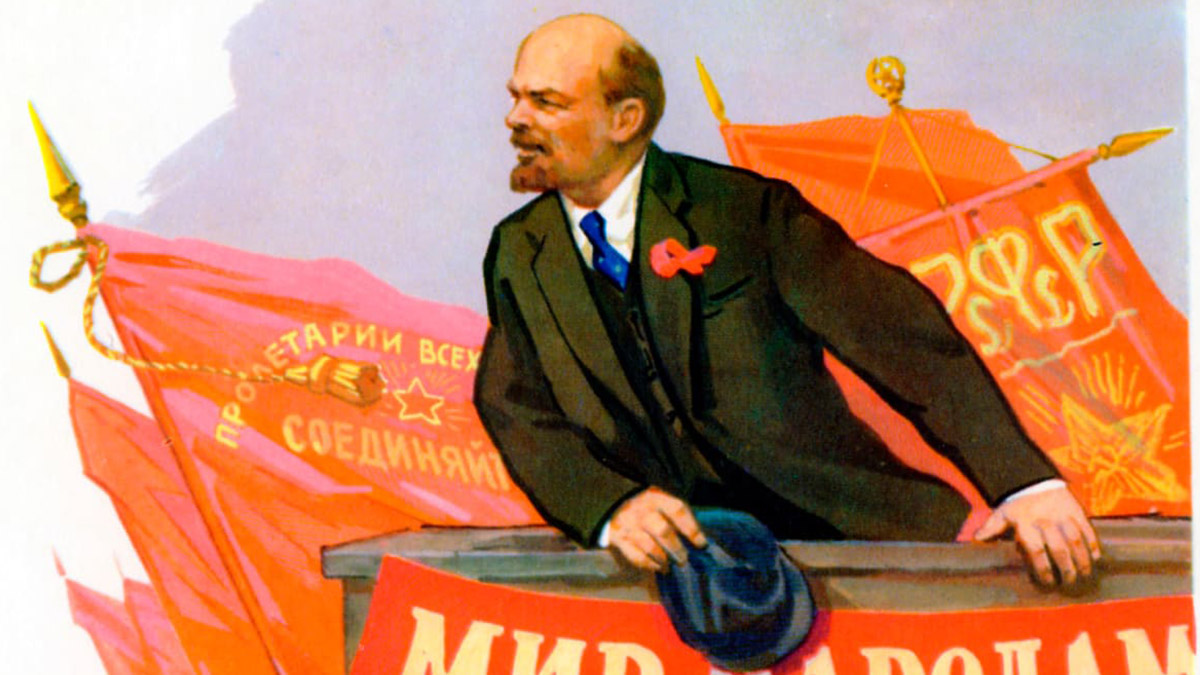Leader of the Russian Revolution, one of the important political events of the twentieth century: Lenin
Russian statesman Vladimir Lenin was a very influential figure in world history. His real name was Vladimir Ilyich Ulyanov. Lenin was a well-educated man and became a lawyer in 1892. However...

The last century began with the victory of Vladimir Ilyich Ulyanov and ended with the defeat of Nikolai Lenin.
Don't get me wrong, they are the same man.
Lenin's name is often used by Marxist revolutionary organizations to describe themselves.
After all, revolutionaries will not identify themselves by the names chosen by their fathers.
Lenin's father, Ilya, was an information inspector in the Russian city of Simbirsk, his mother Maria was the daughter of a wealthy physician.
When Vladimir Ilyich woke up one morning, his elder brother Alexander, Tsar III. He received the news that he had been executed for involvement in a conspiracy against Alexander.
His brother's code name in the organization that unsuccessfully assassinated the Tsar; It was 'Lenin'. Vladimir adopted the name 'Lenin' and swore revenge.
He studied law at university, but one side of him was always revolutionary. Laws were for 'memorization', while Karl Marx's philosophy was 'to be applied'.
Thus, "revolutionary propaganda activities" began in Saint Petersburg.
Petersburg would become Leningrad to honor his name after the Bolshevik Revolution. With the collapse of the Soviet Union, this former capital was restored to its ancient name.
Lenin had seen the tsarist rule collapse under the weight of his successive mistakes.
In Russia at the end of the nineteenth century, there was only the Tsar and the famine. Of course, there was also an environment that gave birth to high society and outliers like Rasputin.
Lenin was first arrested at the age of twenty-seven, spent a year in prison, then deported to Siberia for three years.
Here he met and married another revolutionary, Nadezhda Krupskaya. His first book at the time; He wrote The Development of Capitalism in Russia.
When he returned to Petersburg, he was once again arrested. When he was released, he took his breath in Switzerland.
Here he published a magazine called Iskra, the motto of the magazine; It was 'Spark of Light'.
Lenin lived in exile in Europe for 17 years; He was quite poor, his clothes plain and old, his food modest.
Leon Trotsky joined the cast when he began publishing Iskra in London in 1902.
It was a very famous alliance, and less than a year later the most important communist conflict took place.
Meanwhile, Russia was in decline. Returning to the country, Lenin incited the people to revolt.
However, the Tsar discouraged the people from revolting by establishing a parliament called the Duma.
This time, Lenin fled to Sweden. Now he had the support of two important figures; Maxim Gorky and Joseph Stalin!
He went from Sweden to Paris, from Paris to Poland, and from Poland to Austria.
Towards the end of the First World War, he moved from Germany to Petersburg.
According to the Julian calendar; On October 25, 1917, the Bolshevik Revolution took place.
Vladimir Lenin was elected chairman by the Communist Party Central Committee.
One of the committee members was Stalin.
Lenin was forty-seven, short, bald and with a small red beard, though he looked much older.
Upon the success of the Great October Revolution (6-7 November 1917), Lenin became Head of the established Soviet Government. The first thing the Soviet Government did was to issue the "Peace" and "Land" decrees.
During these years, Lenin started to build socialism in the economic field. In 1921, he brought the "New Economic Policy" (NEP) and the "Cooperative Plan" to the agenda.
In December 1922, the Union of Soviet Socialist Republics was formed.
He fell seriously ill in November 1922 and was away from active work after that date. He died on January 21, 1924, leaving behind a great theoretical and historical legacy.
